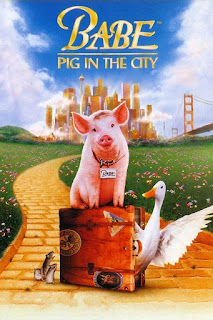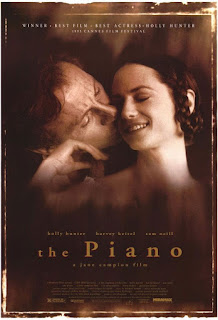September 13th: THE LEGEND OF 1900 (Giuseppe Tornatore, 1998)
At the turn of the century, a baby is born and orphaned on a transatlantic ocean liner, and grows to become a world-class pianist, without ever setting foot on land.
In the 1980s, Italian cinema was going through a crisis, with its 1960s iconoclasts Federico Fellini and Michelangelo Antonioni in the declining twilight of their careers, and other bright stars Sergio Leone and Bernardo Bertolucci working on English language productions. New hope came most notably in the form of writer-director Giuseppe Tornatore, whose second film Cinema Paradiso was an international hit and won the Oscar for Best Foreign Language Film.
Tornatore continued working in Italy throughout the 1990s, but stumbled upon a dramatic monologue Novocento by popular Italian writer Alessandro Baricco, and had the idea to turn it into a film. Because of the story's setting and action, Tornatore's adaptation demanded a considerably higher budget than what he was used to working with, so he opted to shoot the film in English with the intention of reaching a wider audience.
First to sign on was British actor Tim Roth (Pulp Fiction), who accepted the role just based on reading a translation of the original monologue. Also in the cast are Pruitt Taylor Vince (JFK, TV's The Walking Dead), British actor Peter Vaugan (TV's Game of Thrones), French actress Melanie Thiérry, and American actors Bill Nunn (Do The Right Thing) and Clarence Williams III (Purple Rain) as legendary jazz pianist Jelly Roll Morton.
The extensive sets were built at famed Italian studios Cinecitta, home to most of Fellini's outrageous productions. The fictional "SS Virginian" was modeled after real-life ships RMS Lusitania (famously sunk by Germany during World War II) and its sister ship RMS Mauritania. Location shooting was done in Rome and in Odessa, Ukraine. Behind the camera was Hungarian cinematographer Lajos Koltai (Danny Boyle's Sunshine).
For the large amount of music featured in the film, Tornatore called in his Cinema Paradiso collaborator and cinema legend Ennio Morricone, who spent a year working on the score, with help from Italian jazz veteran Amedeo Tomassi and including vintage selections by Jelly Roll Morton and ragtime composer Scott Joplin. Famed concert pianist Gilda Butta played solo piano on the recording.
The film was a commercial and critical success in Italy and won David di Donatello awards for cinematography, costume design, Tornatore's direction, the music, and production design. New Line Cinema distributed the film in the U.S. on the condition that 45 minutes were removed from the original cut. Domestic critical reaction was mixed, and it did not leave much of a mark at the box office, but did go on to win Morricone his second Golden Globe award.
Running time is approx. 2 hrs, 45 min.










Comments
Post a Comment